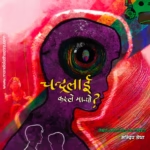“Antigone” is one of the world-renowned tragedies by the ancient Greek playwright Sophocles, written around 441 BC.The play begins with the death news of two sons of Oedipus, Eteocles and Polyneices, who are fighting for the kingship of Thebes. Both men die in the battle. Their successor, Creon, decides that King Eteocles will be buried, but Polyneices, because he was leading a foreign army, will be left on the field of battle. Antigone, his sister, buries him anyway.
Antigone is caught burying Polyneices and is condemned to death. Her fiancée and Creon’s son, Haemon, learns about this and tries to convince Creon to change his mind. It’s only then that the seer Tiresias appears. After a long discussion, he finally persuades Creon that the gods want Polyneices buried. By then it’s too late- Antigone has hung herself, Haemon kills himself when he finds her, and Creon’s wife kills herself when she learns about her son. Mandala Theatre-Nepal presents Antigone in Nepali language for its audiences. The play is not an adaptation with contexts but a direct interpretation in Nepali context. The play has been translated into Nepali being based on the English version by Dudely Fitts and Robert Fitzerald. The play had been selected and staged in 8th Theatre Olympics 2018 hosted by Government of India and in Ritwik International Theatre Festival, India.





